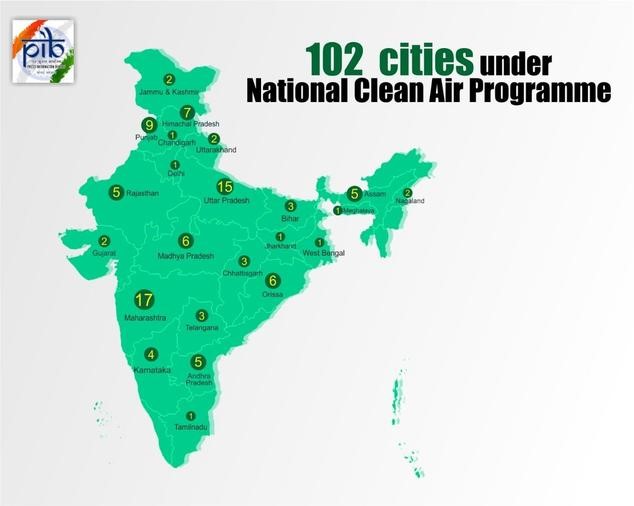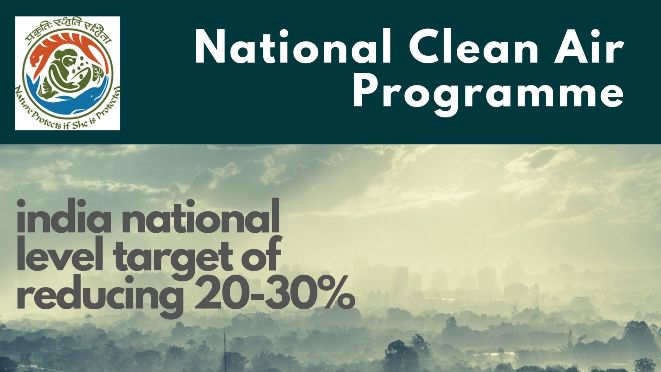National Clean Air Program: Working towards Cleaner Environment

In a vast country and an emerging economy like India, many challenging issues arise and they need proper attention. Air pollution has increasingly been becoming a serious concern. India has been continually working for a clean environment and pollution-free air and water. To address the issue, the Indian government has taken many significant steps that showed some improvements but over some time, they seemed inadequate, so the need for National Clean Air Program was felt. The National Clean Air Program or NCAP is a government program launched by the Union Ministry of Environment, Forests, and Climate Change in 2019. The National Green Tribunal (NGT) has directed the Ministry of Environment, Forest and Climate Change (MoEFCC) to modify the National Clean Air Program (NCAP) which proposes a 20-30% reduction in air pollution by 2024.
What is National Green Tribunal (NGT)
Under National Green Tribunal Act 2010, is set up to tackle the cases relating to environmental protection and conservation of forests and other natural resources. This body assures the citizens of India have the right to a healthy environment.

National Clean Air Program (NCAP)
The program is a collaboration between the Ministries of Road Transport and Highways, New and Renewable Energy, Petroleum and Natural Gas, Heavy Industry, Health, Housing, and Urban Affairs, of Agriculture, Niti Aayog, and Central Pollution Control Board. The program aims to enhance the national air quality monitoring network and build capacity for air pollution management. There are 120 cities from 23 UTs and states, chosen for the execution of this program. Maharashtra has the maximum number of cities under this program.
NGT’s Direction to NCAP
- The timeline to reduce air pollution by 2024 as proposed by the ministry, needs to be reduced.
- The target percentage of 20-30 % to reduce air pollution needs to be changed. The target should be increased.
- It suggested the Ministry review and take action on shifting to e-vehicles and CNG vehicles.
- It also suggested reviewing the intensifying public transport system, mechanical cleaning of roads, enhancement of public parking facilities, improvement in fuel quality, and traffic management.
- State pollution control boards need to assess and install Ambient Air Quality Monitoring Systems within six months.
- It directed an expert team of the Central Pollution Control Board to design a model for source apportionment and carrying assessment within two months that may be replicated for all the non-attainment cities.

Air pollution has become the most common issue in society. It is a silent enemy that causes harmful impacts on people’s health. Though these programs have been initiated, experts believe that the progress to achieve the target is very slow. The issue of air pollution became very explosive when Central and State governments were questioned about poor air quality in Delhi and the surrounding areas. Stubble burning came up as a significant reason for air pollution. NCAP is the right action to tackle these issues however, effective implementation and follow-up on progress are the keys to the success of this program. The allocated departments, officials, and citizens have to work together to make it successful.